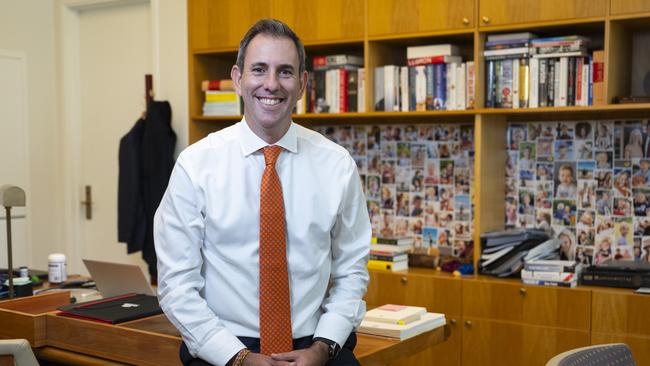
Central to Labor’s rebuild is the ability of Jim Chalmers and Katy Gallagher to craft a politically astute budget that eases cost-of-living pressures for more Australians, avoids driving-up inflation and addresses concerns of anxious backbenchers.
The May 14 budget has emerged as a critical pre-election marker for an embattled government, which ended last year in chaos over the failure of the Prime Minister’s voice referendum and the mishandling of the release of dangerous non-citizens into the community.
Chalmers’ final May budget before the 2025 election presents an opportunity for the ambitious Treasurer to reclaim traction for the government.
The Queenslander, who will deliver his second straight surplus barring unforeseen global catastrophes, is expected to hold the line against kneejerk cash splashes despite calls from some Labor MPs to broaden cost-of-living relief.
Economists have made it clear that misguided cash handouts would undermine the fight against inflation.
After the government lost a chunk of political capital last year, senior Labor figures who were open to last-minute tweaking of stage three tax cuts are resigned to the fact that the tax relief package will remain unchanged.
While Australian Bureau of Statistics data on Wednesday showed electricity prices and rent inflation would have been worse without government supports, millions of Australians are not captured under Labor’s energy bill relief package. Middle Australia voters who miss out on cost-of-living supports are banking on tax cuts coming into effect from July 1.
For a government desperate to show it has empathy for everyday voters, resisting the urge to dive into the surplus or trim the tax cuts will be difficult.
Chalmers has flagged that the government is pursuing regulatory and policy levers that would have direct impacts on easing inflation and cost-of-living pressures.
Increasingly concerned company chiefs will be nervous about new competition rules, regulations and taxes.
Already under pressure from business leaders over Labor’s economic reform agenda, Chalmers and Albanese will need to manage relations with corporate Australia, which has deep pockets and employs millions of workers.
With cost-of-living issues dominating the lives of voters, Labor is under pressure to get the economic settings right or face the wrath of Middle Australia.




Anthony Albanese’s political fortunes will thrive or die on taming inflation, easing mortgage stress and winning back the confidence of Australian households who are increasingly grumpy with the first-term Labor government.